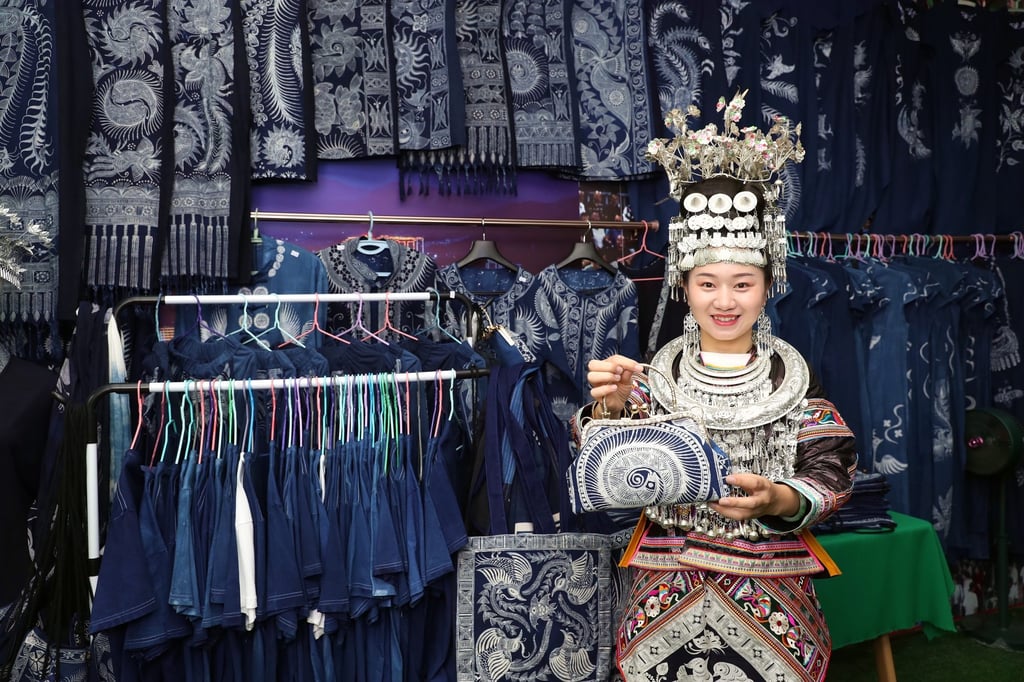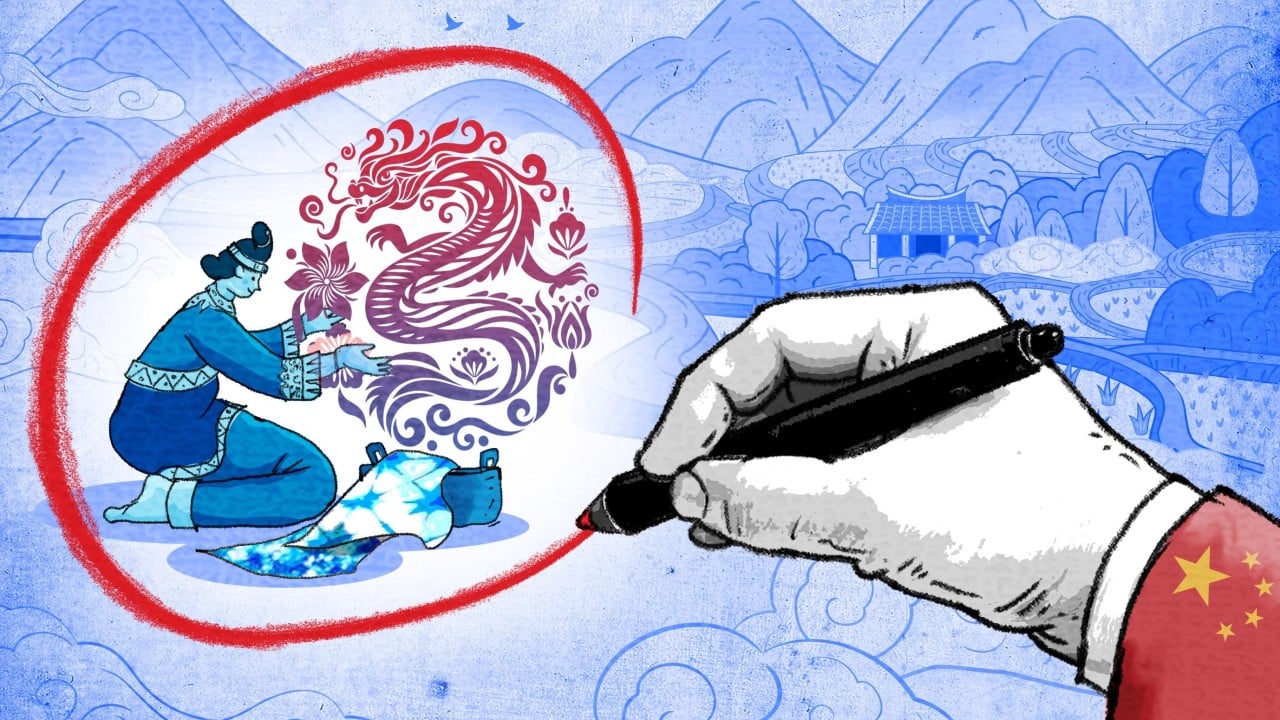Liu Qilan used to be a kindergarten teacher in Guiyang, capital of Guizhou province in southern China. About two years ago, she returned to her rural hometown in Rongjiang county to launch a community-focused business selling local products – from traditional silver to wax-dyed clothing. She has never looked back.
Advertisement
Despite her lack of experience in the field, the then 25-year-old opened her outlet in 2023 with help from the government. She also leveraged the immense popularity of Cunchao, a football tournament played by villagers from Rongjiang county.
Liu is one of many entrepreneurs from less-developed parts of China to have benefited from the country’s renewed emphasis on preserving and revitalising cultural heritage – a cornerstone of President Xi Jinping’s vision to instil “cultural confidence” in the population of 1.4 billion.
For decades, China’s economic development was synonymous with mass production and industrialisation, with traditional craftsmanship relegated to the margins. But recent policies to support artisans, along with the success of entrepreneurs such as Liu, suggest both authorities and consumers have a new appreciation for these age-old skills.
According to observers, preserving craftsmanship is a way to build cultural confidence, which in turn is part of China’s pursuit of socialism – particularly the “mass line” principle calling for close ties between the Communist Party and the people.
Advertisement
Cunchao, also known as the “Village Super League”, is not just a tournament but a carnival blending sport and local culture, where football matches are interspersed with performances by ethnic minority dance troupes. Millions of people have watched the spectacle in person and online since it was launched in May 2023.


